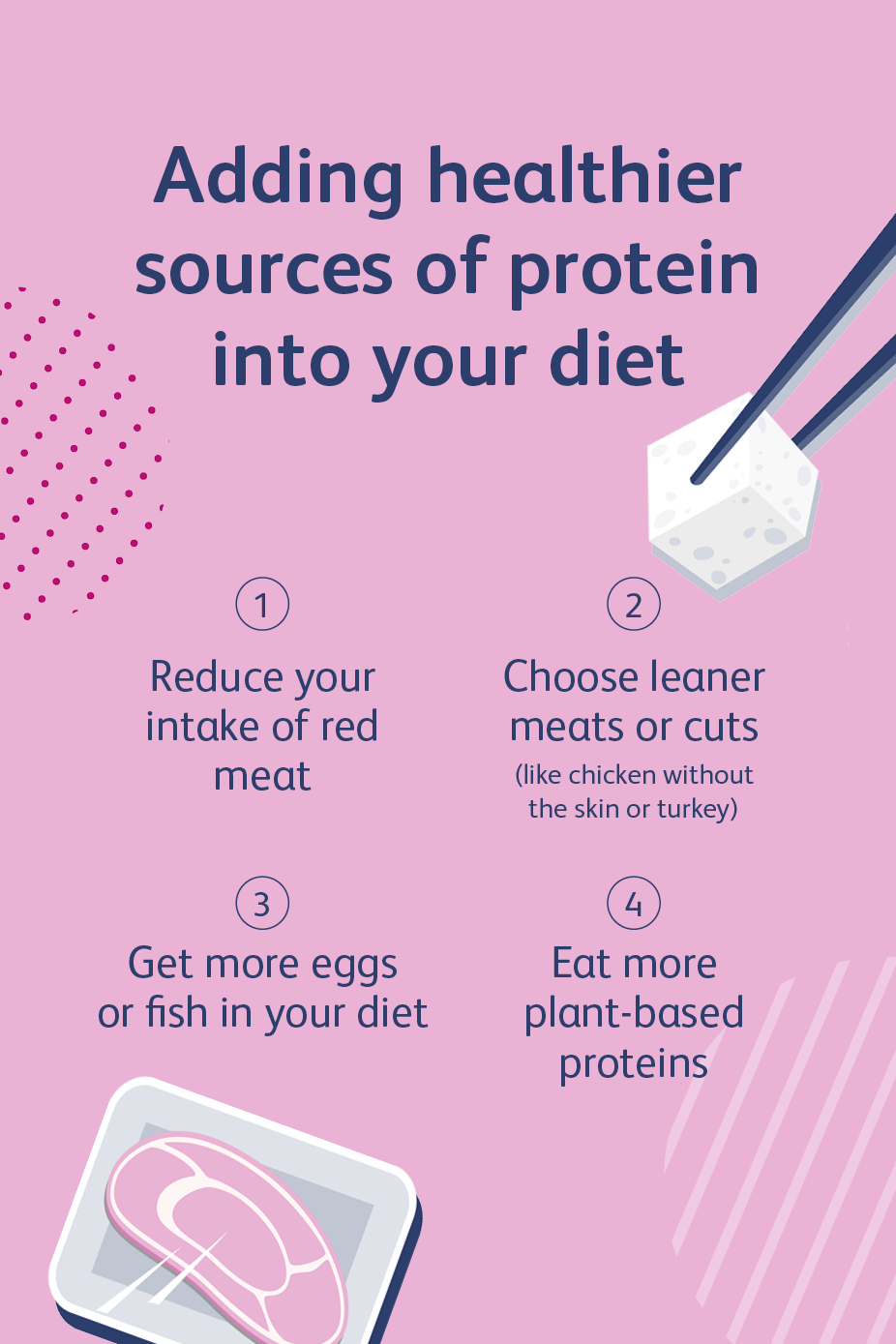What is protein?
Reviewed by our clinical team
Protein is a macronutrient, that we all need for growth, repair and maintenance, especially for bones and muscles. Macronutrients are the nutrients we need in the biggest quantities, micronutrients are needed in smaller quantities. Our protein needs change depending on our age and health.
In this guide we're going to look at the different sources of protein, how much protein you should be eating and the benefits.
How much protein do I need?
In the UK, on average we eat almost double the amount of protein we need. The Reference Nutrient Intake (RNI) is 0.75g of protein per kg bodyweight per day for average-weight adults (approximately 56g/day for men and 45g/day for women depending on bodyweight).
People who do some physical activity, like going for a run or to an exercise class are unlikely to need any extra protein. For people exercising at a high level, having some protein soon after a training session can help muscles rebuild.
Sources of protein
It's important to include a range of protein-containing foods. Evidence shows that the more plant-based proteins we eat, the better it is for our health.
Red and processed meat
Red meat such as beef, lamb and pork are excellent sources of protein, iron, zinc and B vitamins. However, red meat is also high in saturated fat. Too much saturated fat can raise blood cholesterol levels which will raise your risk of coronary heart disease.
Processed meats like ham, bacon, or sausage tend to be high in saturated fat and salt. Eating too much red and processed meat probably increases your risk of bowel cancer. Meat-heavy diets have been linked to increased risks of heart disease, diabetes, some cancers.
Plant-based protein
Plant-based protein sources like soy, tofu, tempeh, soy-based meatless food, pulses, beans, grains and nuts are great alternatives to meat. It's recommended that we all eat more of these as they are lower in fat and higher in fibre. Pulses are a particularly important source of protein for vegetarians and vegans.
There are many plant-based alternatives to meat such as vegetarian sausages or burgers. These often seem like a healthy choice, but this is not always the case. It's a good idea to check nutrition labels and to choose those lower in saturated fat, salt and sugars.
Including healthier sources of protein in your diet

There are a range of ways to include the right types of protein in your diet and make sure you're not eating too much. Here's our top tips:
Reduce your intake of red and processed meats
Keep your intake of red and processed meat to 70g or less a day.
Choose different meats or cuts
Choose leaner meats or cuts, like chicken without the skin or turkey.
Eat more eggs
Include eggs in your diet. Eggs are a good source of protein and provide omega-3 fats, vitamin A, B vitamins, vitamin D and selenium.
Eat more fish
Non-vegetarians should aim for least two portions of fish (approximately one-hand sized piece or three fish fingers) every week.
Oily fish such as salmon or mackerel are the most nutritionally beneficial. This is because they are great sources of vitamin D and omega-3 fatty acids, which may help prevent heart disease.
Go more plant-based
Eat more plant-based proteins such as tofu, soy, pulses, lentils, beans and nuts as these are all high in protein and fibre and lower in fat.
Cutting down on animal protein
If you want to take healthy eating one step further, you can try to eat less animal protein. Ease yourself into meatless meals by going meat-free one day a week.
Try replacing meat with foods like fish, dairy and eggs before swapping for plant-based proteins. If meat-free meals seem like a step too far, replace some of the meat in dishes like stews, chilli or bolognese sauce with beans or lentils.
You can find out more about eating a healthy diet with this guide, or visiting our lifestyle advice hub.
References
https://www.nutrition.org.uk/healthy-sustainable-diets/protein/
https://www.bhf.org.uk/informationsupport/heart-matters-magazine/nutrition/protein
https://www.bhf.org.uk/informationsupport/support/healthy-living/healthy-eating/healthy-eating-toolkit/food-portions/beans-pulses-fish-eggs-meat
https://www.bhf.org.uk/informationsupport/heart-matters-magazine/news/behind-the-headlines/is-red-meat-ok
https://www.nhs.uk/live-well/eat-well/food-types/meat-nutrition/





